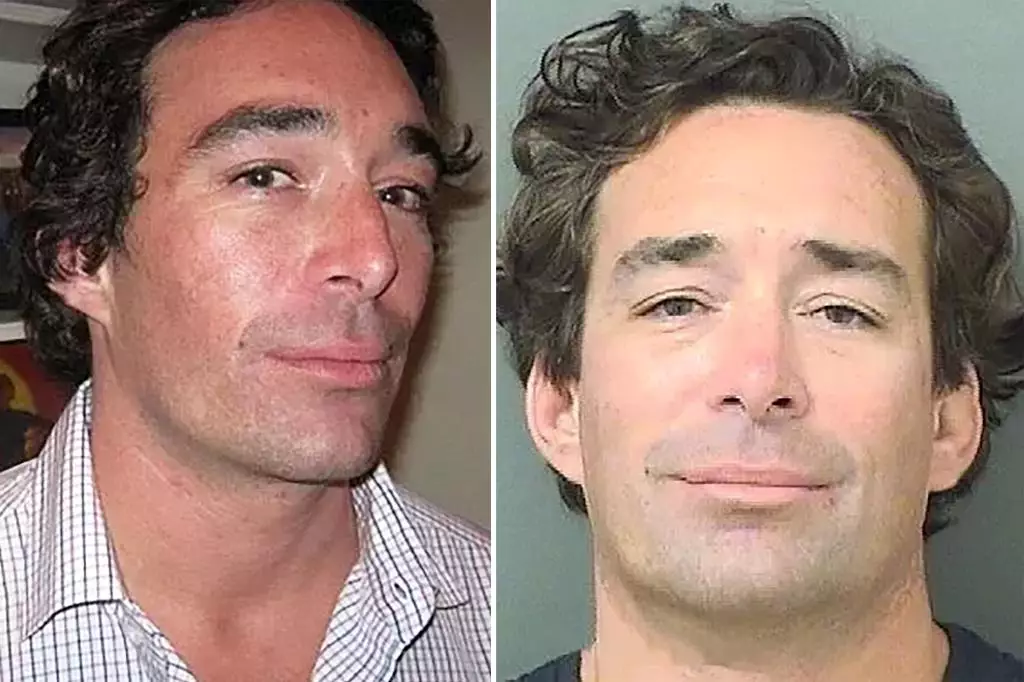The world of privilege can often veil the darkness that lurks beneath the surface. The recent case involving sugar heir Alexander “Nico” Fanjul serves as a stark reminder of this reality. In early 2023, Fanjul pleaded guilty to charges stemming from a domestic violence incident at his Palm Beach residence. The court’s decision to impose four years of probation along with 200 hours of community service raises several questions about accountability and societal attitudes toward individuals with significant wealth and influence.
Witness accounts indicated a chaotic scene, where Fanjul was found standing over a woman in a distressing state. The police were summoned after neighbors reported hearing screams, indicative of the potential threat to the woman’s safety. The situation escalated after a dinner at the upscale Flagler Steakhouse, during which Fanjul reportedly became enraged due to the company he was seated next to—a homosexual couple. This incident not only illustrates the volatility that can accompany unchecked privilege but also reflects deep-seated societal prejudices that manifest in such irrational outbursts.
Following his arrest, Fanjul was whisked away to a luxury rehabilitation center known for its high-profile clientele. Allegations of previous domestic violence incidents against girlfriends underscore a pattern rather than an isolated event, calling into question the adequacy of judicial responses to domestic abuse, particularly when committed by those of wealth and stature. Though he was not formally charged in a later incident involving another girlfriend, the narrative surrounding Fanjul paints a picture of someone seemingly enabled by resources that allow him to evade serious consequences.
His public relations team’s statements, emphasizing a desire for personal improvement and to be a “positive influence” in the community, seem empty when juxtaposed against multiple incidents of violence. While self-reflection and rehabilitative efforts are commendable, they do little to mitigate the immediate trauma inflicted on victims. The cycle of public apology and subsequent return to privilege may foster a sense of impunity, which can undermine public trust in the justice system.
The silence surrounding victims’ suffering deserves special attention. The unnamed women who have spoken out about their experiences with Fanjul provide a glimpse into the complex emotional and psychological damage that domestic violence inflicts. One woman reported fearing for her life and indicated that past incidents had gone unreported, showcasing the stigmatization and isolation many victims face. Such narratives highlight the crucial need for society to provide not just legal support, but also emotional and psychological resources for those who endure such traumatic experiences.
Moreover, the frequent dismissal of such incidents—either through non-reporting or lack of action by victims—speaks to a larger cultural issue that often minimizes the seriousness of domestic violence. Can we begin to change societal attitudes if those entrenched in privilege remain unscathed by their actions? Serious questions emerge about the implications of allowing wealth and status to obscure accountability.
As one reflects on the case of Nico Fanjul, it becomes apparent that this incident is not merely about one individual but rather serves as a reflection of broader societal issues surrounding violence, privilege, and the justice system. Does wealth protect one from accountability? The discrepancies in treatment between affluent individuals and less fortunate offenders should incite public outrage. Victims of domestic violence should not feel that their pain is diminished by the status of their abuser.
Importantly, Fanjul’s case also highlights the intricate relationship between mental health, emotional distress, and violent behavior. His move towards rehabilitation might be a step in the direction of healing; however, it necessitates a deeper understanding of the roots of his behavior, questioning whether luxury rehabilitation can genuinely address the issues at play.
As we move forward, the challenges that Fanjul’s case presents must be acknowledged and addressed. A cultural shift in how domestic violence is perceived and treated is critical, advocating for victims and mandating accountability for perpetrators, irrespective of their societal stature. Ultimately, the responsibility lies not only within the judicial system but within society at large to confront its biases and reinforce the idea that privilege does not equate to immunity from consequence. The hope remains that through awareness, education, and advocacy, the cycle of domestic violence can be dismantled, heralding a future that prioritizes safety and justice for all.

Leave a Reply